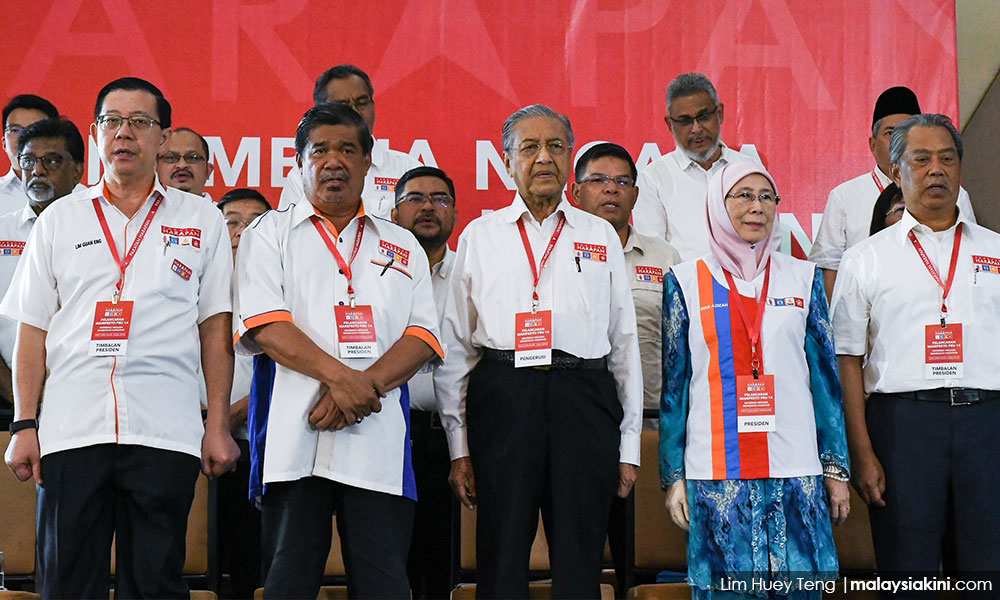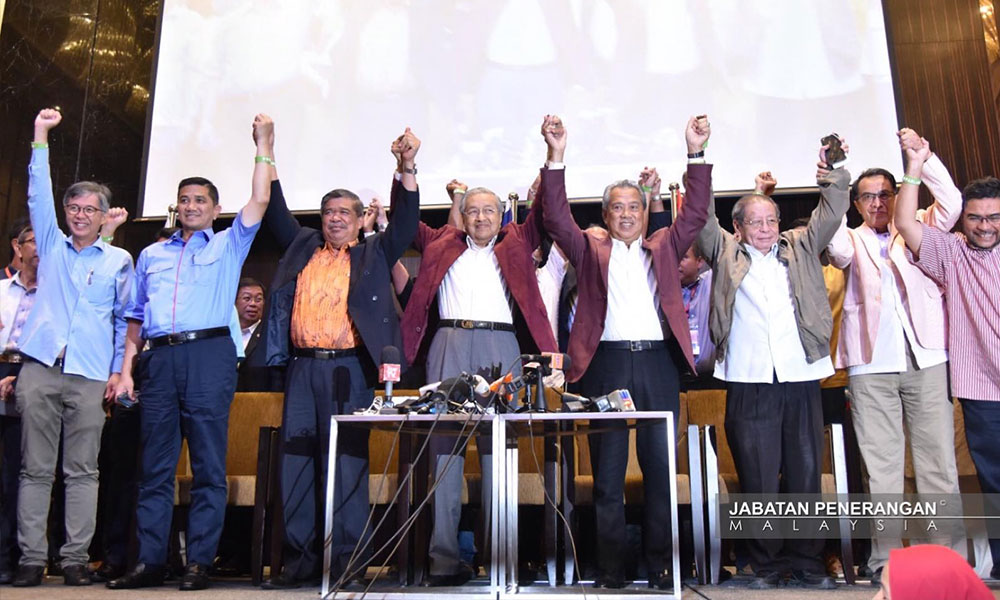ADUN SPEAKS | Are the promises made in the Pakatan Harapan manifesto false, unrealistic or crafted in anticipation of defeat in the last general election?
Or is there simply a lack of political will to give force and substance to the pledges?
More than a year has elapsed since Harapan's takeover of the federal government, but little has been done to implement the promises made.
These promises were not made in abstraction, but in the larger context of the urgent need to wrest power from the decadent and corrupt BN.
Malaysians had waited too long to get rid of the ossified and ineffectual government that sought to rely on racism and religious appeals to ensure its survival.
People were getting tired to the extent that they were hungry for change. The answer to this came in the form of Harapan as the agency for change.
Political change does not occur in abstraction. It has to be effected through coalition building and effective campaigning.

In this respect, the drafting and launching of the Harapan manifesto was done on the note that the promises made were deliverable and serious.
It was an attempt to convince Malaysians, irrespective of their ethnic or religious origin, that the future needs to be taken seriously.
Thus, for one foreign researcher to describe the promises as "unrealistic" simply smacks of ignorance and arrogance. The remarks are totally out of touch with the political reality of the nation in the immediate period before the last general election.
By the way, the Harapan manifesto is simply not a research document, but a political one.
To call it "unrealistic" reveals not only the simple-mindedness of the researcher but his lack of political understanding.
The other contention that the promises were made in anticipation of not winning the general election has to be rejected.
Such an argument basically implies that the Harapan leadership was not honest, and that it had to make the promises to woo voters even though winning was not possible.
This is highly irresponsible and careless, as it gives the impression that false promises were made to dupe the people into voting for Harapan.

Harapan emerged victorious even though it was unexpected, and now the new coalition has the monumental task of fulfilling all the promises it made.
The financial position of the country in the immediate aftermath of the election has been cited as one of the reasons why promises could not be delivered. This is a reasonable point of view.
But then there are so many promises that could be met even without much spending. At least, the Harapan leadership could have identified them by providing a time-frame for their implementation.
But nothing has been done to date. We are not sure why.
Many who campaigned hard in the last election general election are finding it difficult to explain to supporters why the Harapan government is silent when it comes to delivering the promises.
Even if the implementation of the promises has been delayed, they understand. But, at least, the government could provide them with a time-frame for their eventual implementation.
The Harapan manifesto is not a joke nor was it intended to mislead the people nor was it made on the basis of some unrealistic considerations. These reasons cannot be accepted. To accept them will render the whole Harapan government hollow.
Of course, some would argue that the non-delivery of the promises is related to the larger question of the lack of political will. Why isn't there a strong will?
Is it because the government seems to be too preoccupied with the racial and religious appeals of Umno and PAS? Or is it because the ministers have yet to do serious work or are they waiting for directions from the prime minister himself?
Three and a half years to the next general election is not too far off. The support from Malaysians will be more or less decided on a host of factors, including fulfilling the pledges made in the manifesto.
If no attempts are made to implement them, Harapan might be in for trouble.
P RAMASAMY is the state assemblyperson for Perai. He is also deputy chief minister II of Penang.
The views expressed here are those of the author/contributor and do not necessarily represent the views of Malaysiakini.

